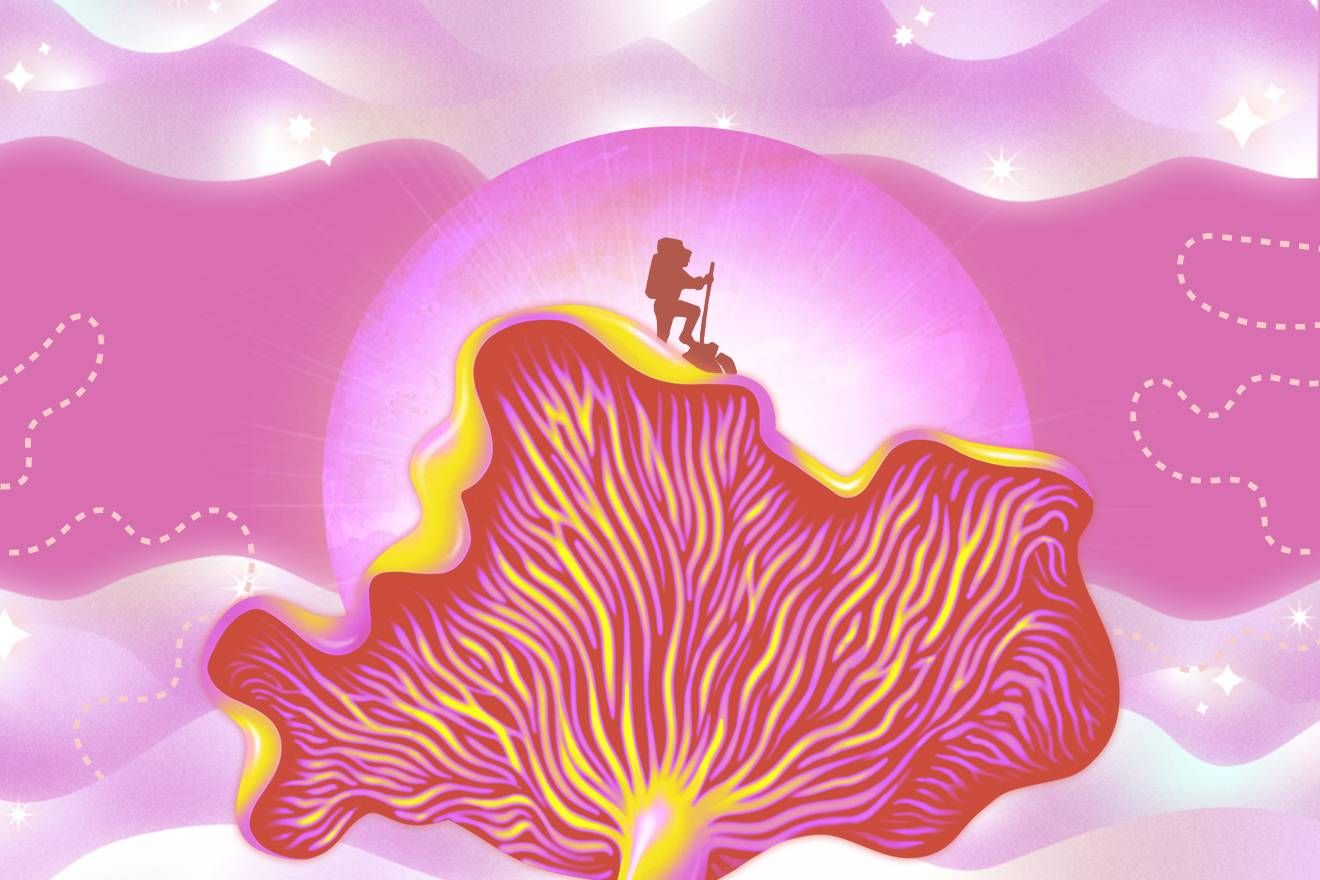Taking a journey with psychedelic therapy can be an unexpected, but healing, step. Sandra Statz was on the cusp of founding a new company. Countless hours of work had gone into getting A.P. CHEM, an age-decelerating skincare brand, off the ground, and Statz was finally about to reap the fruits of labor. But then, she started to get sick. Chronic pain that made it difficult to get out of bed, much less run a business.
Today, her business is thriving. However, their mission looks slightly different. Instead of being solely a science-forward beauty brand, they’re using their classic meets alternative skincare products platform to promote another “old meets new” type of field – psychedelics.
The Beginning of a Journey
Today, they’re a forward-thinking brand that believes in the benefits of combining classic and proven alternative medicine to create a unique solution for skin issues. Similarly, psychedelics like ketamine are being researched for their ability to enhance industry-standard mental health treatments. But in the beginning, psychedelic drugs weren’t even on Statz’s radar. It wasn’t until she received a life-changing medical diagnosis that her journey to psychedelic treatment began.
It was 2020, and what started as a painful episode here or there for Statz quickly turned into chronic, lasting pain. Day by day, she was experiencing more and more discomfort. When her primary care physician could not explain, she turned to specialists, including neurologists and gastroenterologists. After a barrage of tests, the doctors would all return with a disconcerting answer, “You’re fine.”
Less than six months after the start of her symptoms, Statz was in a shoulder sling, wrist, ankle, and knee braces. It wasn’t just her physical health suffering, but her mental health too. “I got tired of seeing yet another ‘top tier’ specialist only to be dismissed, and worse, walking away with no hope,” Statz recalls.
Depression and sadness aren’t uncommon for those suffering from chronic pain. One study found that pain and depression are highly intertwined, and that one often exacerbates the symptoms of the other. Statz concurs, “Anyone who, unfortunately, understands chronic pain, knows how taxing it is on one’s psyche,” she admits, “I’ll say it: I was depressed. Extremely depressed. I felt hopeless.”
The same study highlighting the comorbidities of pain and depression elicited another exciting conclusion: alternative pharmacotherapies can effectively improve depressive symptoms and alleviate pain. As a result, Statz was ready to embrace alternative pharmacotherapies, “When you’re that sick and in that much pain, you’ll try anything,” she confesses.
At first, her steps into non-traditional treatment options were tame, such as visiting a chiropractor, a pharmacologist specializing in Traditional Chinese Medicine, and a doctor of Energy Medicine. But when she was ultimately diagnosed with Rheumatoid Arthritis, an autoimmune inflammatory disease that can cause enduring pain, stiffness, and swelling of the joints, Statz began to focus on treatments that could better target the source of her discomfort.
That was when a close friend suggested an emerging field of treatment for both physical and mental ailments – ketamine therapy.
What is Ketamine?
Ketamine is a general anesthetic, which is why it has been used for pain management and sedation since the 1960s. However, FDA only approves ketamine and esketamine (Spravato, for depression) as short-term injectable anesthetics. Though it is classified as a dissociative, it does produce psychedelic effects at specific dose ranges.
There is a lot of research into the drug’s possible benefits for treating mental health conditions. Scientists theorize that it blocks the neurotransmitter glutamate and affects receptors in the brain for serotonin, gamma-aminobutyric acid (GABA), dopamine, and a few others. These interactions underlie ketamine’s anti-inflammatory, antidepressant, and pain management properties.
However, promising study results after using ketamine to treat mental health conditions have led the FDA to approve esketamine nasal spray to treat depression. There are now several studies testing various doses and routes of administration of ketamine and ketamine-assisted psychotherapy in patients with depression, PTSD, chronic pain, and psychiatric conditions
A Transformative Experience on a Journey with Psychedelic Therapy
Trained professionals give ketamine in a clinical facility. A professional will administer the medicine through a slow IV (constant intravenous) drip, an intramuscular injection, or orally as a lozenge. Some individuals experience relief from symptoms in hours, but the average time tends to be after one to three infusions spaced days to weeks apart. Still, it isn’t a “one-and-done” type of therapy, and the positive effects only last up to 2 weeks. Although ketamine-assisted psychotherapy can prolong the beneficial effects and can a better option to for addressing underlying psychological causes of symptoms, rather than masking symptoms temporarily with a medication.
Through neuroscience studies, ketamine has been shown to elicit neuroplasticity in the brain. In the infusion paradigm of ketamine administrations, usually within one “cycle,” which consists of six infusions administered over two to three weeks, it is thought that neurobiological mechanisms are responsible for the positive outcomes rather than the psychotherapy intervention where a person tries to use the experience to find new insights and meaning into their life situations. For most patients, ketamine infusions have short-lived effects, and they need booster doses to maintain the effects.
Follow your Curiosity
Sign up to receive our free psychedelic courses, 45 page eBook, and special offers delivered to your inbox.For Statz, the infusions were so transformative she wanted others to know how much she had recovered with them. She had truly gone on a journey with psychedelic therapy. She had finally found relief after endless pain, noting that “even when I finally started to feel my symptoms improving, I don’t think my brain knew how to not be in pain anymore, to not struggle.” The success of ketamine in treating both her inflammation and her depression was so profound she began meeting with researchers and clinicians in psychedelic medicine. Soon, she realized that she had stumbled into a passionate medical community fighting for the awareness and de-stigmatization of psychedelics to treat mental and physical health.
Like her, many of them had experienced psychedelics’ significant mental and physical health benefits. Understanding that everyone’s path to wellness is unique and deeply personal means psychedelics may not be for everyone. However, they advocate for more research to understand the full scope and risk of psychedelic use in medicine. “We just want to create an open-minded and welcoming community to illuminate your options,” offers Statz.
And Statz felt so strongly about that community and its mission that she knew she couldn’t just be a member. So, she made it her brand’s mission to advocate for psychedelic medicine – and, more broadly, to open people’s minds to alternative care.
Today, Statz is a ketamine advocate, educator, and confidant for those wanting to explore psychedelic treatment options.
Statz says, “That whole journey with psychedelic therapy made me realize how important it is to be an advocate for your own health, and to know your options when it comes to your physical and mental wellbeing.” It also doesn’t hurt to be curious; you might change your mind about psychedelics after discovering their promising potential to transform the brain.






